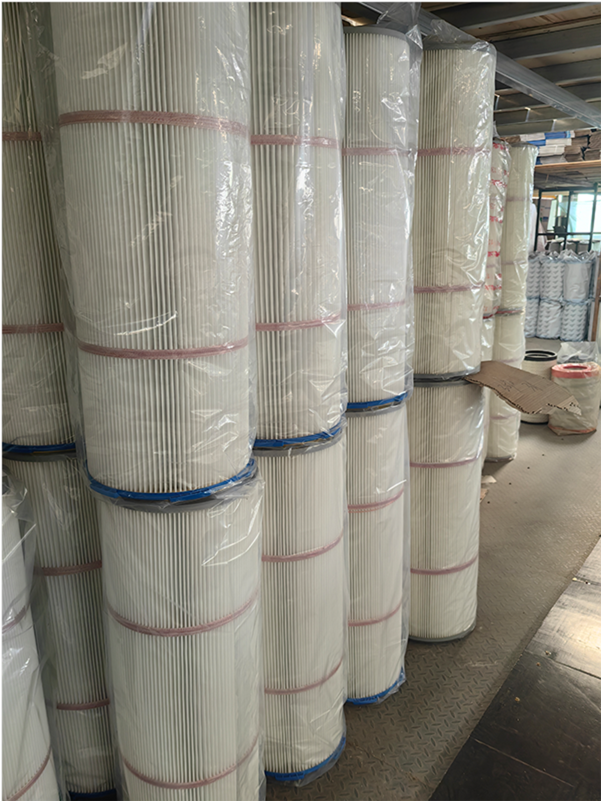 Tel:
+8615930870079
Tel:
+8615930870079
سبتمبر . 08, 2024 10:14 Back to list
Cartridge Filter Air - Efficient Air Filtration Solutions
Understanding Cartridge Filter Air Systems
Cartridge filter air systems are an essential component in various industries, where maintaining air quality and ensuring operational efficiency are paramount. These filter systems utilize cartridge filters, which are cylindrical filtration devices designed to remove particulates and contaminants from the air, safeguarding equipment and processes.
What are Cartridge Filters?
Cartridge filters consist of a filter media housed within a cylindrical cartridge. The media is made of various materials, depending on the application's requirements, including fiberglass, polyester, or cellulose. These filters are engineered to capture airborne particles, including dust, pollen, smoke, and other pollutants. Cartridge filters stand out due to their high filtering efficiency and large surface area, allowing them to trap more contaminants without restricting air flow significantly.
How Do Cartridge Filter Air Systems Work?
The operation of a cartridge filter air system is relatively straightforward. Air is drawn through the filter cartridges, where contaminants are captured, and clean air is then expelled. The design of the cartridge allows for a larger surface area, which means they can hold more dust and debris compared to traditional flat filters. Over time, as particulates accumulate, the airflow may be restricted, signaling the need for cleaning or replacement of the cartridges.
Many advanced systems incorporate an automatic cleaning mechanism, often utilizing compressed air to pulse-clean the cartridges. This process dislodges the accumulated dust, which can then be collected in a bin or removed through a duct system. This self-cleaning feature minimizes downtime and reduces maintenance labor, ensuring optimal performance of the air filtration system.
Applications of Cartridge Filter Air Systems
cartridge filter air

Cartridge filter air technology is widely used across various sectors, including manufacturing, pharmaceuticals, food processing, and HVAC systems. In manufacturing, for example, these filters help maintain the cleanliness of the air within facilities, preventing contaminants from compromising product quality. In the pharmaceutical industry, stringent air quality standards necessitate effective filtration to ensure a sterile environment.
Furthermore, in HVAC systems, cartridge filters play a crucial role in enhancing air quality in commercial and residential buildings. By capturing allergens and other pollutants, these filters contribute to healthier indoor environments, reducing the risk of respiratory issues among occupants.
Advantages of Cartridge Filters
One of the primary advantages of cartridge filter air systems is their efficiency. They provide robust filtration capabilities while maintaining airflow rates, leading to improved energy efficiency within HVAC systems. Additionally, the compact design of cartridge filters allows them to fit into tight spaces, making them versatile for a range of applications.
Moreover, their replaceable nature makes maintenance straightforward and cost-effective. The ease with which they can be replaced or cleaned also translates to lower operational costs in the long run.
Conclusion
Cartridge filter air systems are integral in maintaining high air quality across different industries. Their efficient design, wide applicability, and cost-effectiveness make them a vital choice for businesses seeking to enhance their operational performance while ensuring the health and safety of their environments. As industries continue to prioritize sustainability and efficiency, the role of cartridge filters in air filtration systems remains more critical than ever.
-
Types and Applications of Air Filtration CartridgesNewsJul.28,2025
-
The Role of Gas Turbine FiltersNewsJul.28,2025
-
Mastering Air Filter Cartridge UseNewsJul.28,2025
-
Advanced Turbine Filters for Modern Gas TurbinesNewsJul.28,2025
-
Cellulose Air Filter Cartridge Advantages in Dust FiltrationNewsJul.28,2025
-
Cellulose Filters for Air Particle ReductionNewsJul.28,2025

 Email:
Email:





